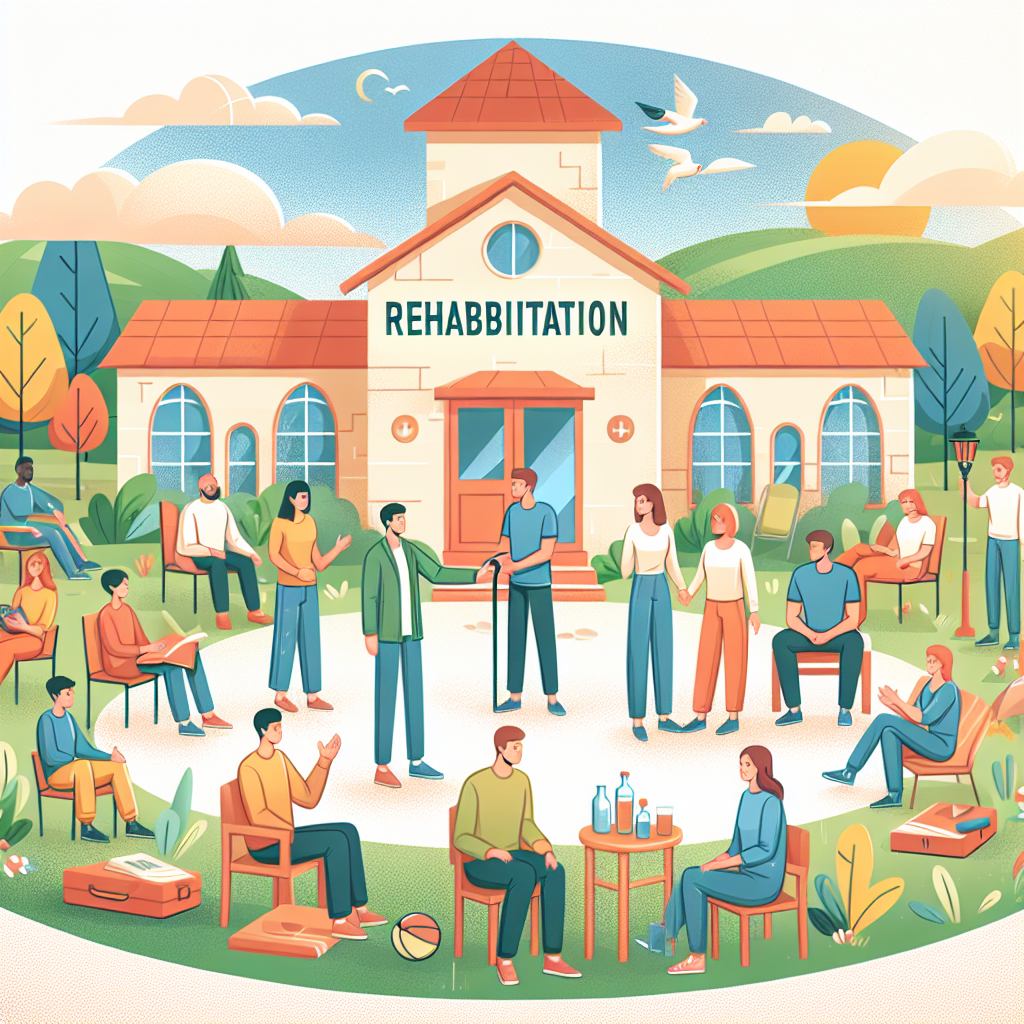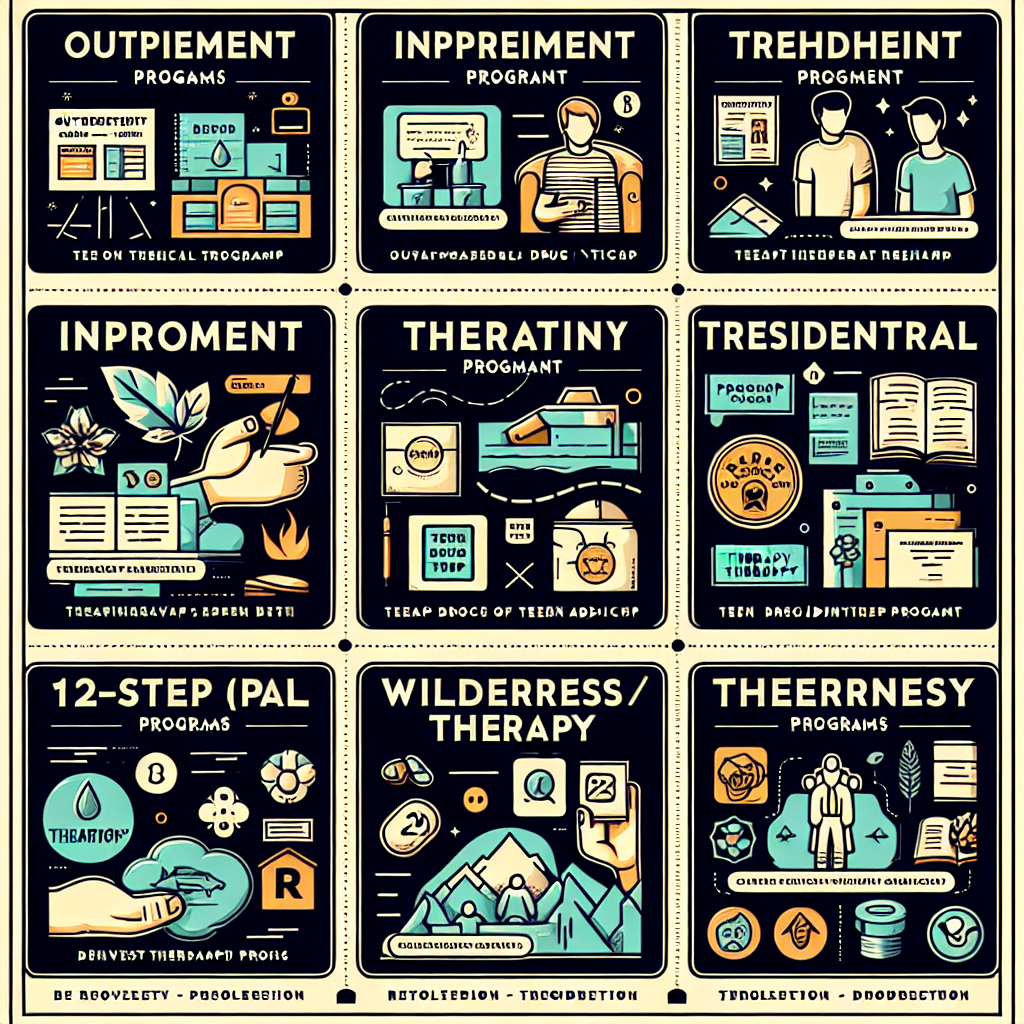-
Table of Contents

“Empowering Futures: The Transformative Journey of Rehab for Young Adults”
Introduction
The impact of rehabilitation on long-term recovery for young adults is a critical area of study within the fields of addiction treatment and mental health. Young adults, often defined as individuals between the ages of 18 and 25, face unique challenges and pressures that can contribute to substance abuse and mental health disorders. Rehabilitation programs tailored to this age group aim to address these specific needs through a combination of medical treatment, psychological support, and life skills training. Research indicates that effective rehab can significantly improve the chances of sustained recovery, reducing the likelihood of relapse and promoting overall well-being. This introduction explores the multifaceted benefits of rehab for young adults, examining how personalized treatment plans, peer support, and ongoing aftercare contribute to long-term success in overcoming addiction and mental health issues.
The Role of Rehabilitation Programs in Sustaining Long-Term Recovery for Young Adults
Rehabilitation programs play a crucial role in sustaining long-term recovery for young adults, offering a lifeline to those grappling with substance abuse and addiction. These programs are designed to address the unique challenges faced by young adults, providing them with the tools and support necessary to navigate the complex journey toward sobriety. The impact of rehab on long-term recovery is profound, as it not only helps individuals break free from the cycle of addiction but also equips them with the skills needed to build a healthier, more fulfilling life.
One of the key elements of successful rehabilitation programs is their holistic approach to treatment. Rather than focusing solely on the physical aspects of addiction, these programs address the emotional, psychological, and social factors that contribute to substance abuse. This comprehensive approach ensures that young adults receive the support they need to heal on multiple levels, fostering a deeper and more sustainable recovery. For instance, therapy sessions, both individual and group, provide a safe space for individuals to explore the underlying issues that may have led to their addiction, such as trauma, anxiety, or depression.
Moreover, rehabilitation programs often incorporate educational components that teach young adults about the nature of addiction and the importance of maintaining a healthy lifestyle. These educational sessions can be incredibly empowering, as they equip individuals with the knowledge and skills needed to make informed decisions about their health and well-being. By understanding the science behind addiction and the impact it has on the brain and body, young adults are better prepared to resist the temptations and triggers that may arise in their daily lives.
In addition to therapy and education, rehabilitation programs also emphasize the importance of building a strong support network. Peer support is a vital component of long-term recovery, as it provides individuals with a sense of community and belonging. Many rehab programs facilitate connections between participants through group therapy sessions, support groups, and recreational activities. These connections can be instrumental in helping young adults stay motivated and committed to their recovery, as they offer encouragement, accountability, and a shared sense of purpose.
Furthermore, rehabilitation programs often include aftercare planning to ensure that individuals have the resources and support they need once they leave the structured environment of the rehab facility. Aftercare plans may include ongoing therapy, support group meetings, and access to community resources such as job training or educational programs. By providing a clear roadmap for continued recovery, aftercare plans help young adults transition back into their everyday lives with confidence and resilience.
The impact of rehabilitation on long-term recovery is also evident in the personal growth and transformation that many young adults experience during their time in rehab. As they work through their addiction and begin to heal, individuals often discover new passions, interests, and strengths that they may not have recognized before. This process of self-discovery can be incredibly empowering, as it helps young adults build a new identity that is not defined by their addiction. By fostering a sense of purpose and direction, rehabilitation programs enable individuals to envision and work toward a brighter future.
In conclusion, rehabilitation programs play an indispensable role in sustaining long-term recovery for young adults. Through a holistic approach that addresses the physical, emotional, and social aspects of addiction, these programs provide the support and resources needed for individuals to heal and thrive. By empowering young adults with the knowledge, skills, and connections necessary for lasting sobriety, rehabilitation programs pave the way for a healthier, more fulfilling life. The journey to recovery is undoubtedly challenging, but with the right support and determination, young adults can overcome addiction and build a brighter future.
How Rehab Centers Facilitate Lasting Recovery in Young Adult Populations
Rehabilitation centers play a pivotal role in facilitating lasting recovery for young adults grappling with substance abuse and addiction. These centers offer a structured environment where individuals can begin to rebuild their lives, free from the triggers and temptations that often lead to relapse. By providing a comprehensive approach that includes medical, psychological, and social support, rehab centers create a foundation for sustainable recovery.
One of the key elements that make rehab centers effective for young adults is the tailored treatment plans they offer. Recognizing that each individual’s journey to recovery is unique, these centers conduct thorough assessments to understand the specific needs and challenges faced by each patient. This personalized approach ensures that the treatment is relevant and effective, addressing not just the symptoms of addiction but also the underlying issues that contribute to it. For young adults, who are often dealing with a myriad of life changes and pressures, this individualized care is crucial.
Moreover, rehab centers provide a safe and supportive environment where young adults can focus solely on their recovery. Away from the distractions and negative influences of their everyday lives, they can engage fully in the healing process. This separation from their usual environment allows them to gain new perspectives and develop healthier coping mechanisms. The sense of community within rehab centers also plays a significant role in recovery. Surrounded by peers who are facing similar struggles, young adults can share their experiences and support each other, fostering a sense of camaraderie and mutual understanding.
In addition to the emotional and psychological support, rehab centers offer a range of therapeutic interventions designed to address the multifaceted nature of addiction. Cognitive-behavioral therapy (CBT), for instance, helps individuals identify and change negative thought patterns and behaviors that contribute to their addiction. Other therapies, such as family counseling and group therapy, provide additional layers of support, helping young adults rebuild relationships and develop a strong support network. These therapeutic interventions are complemented by educational programs that teach essential life skills, such as stress management, communication, and problem-solving, which are vital for maintaining long-term sobriety.
Furthermore, rehab centers emphasize the importance of aftercare planning in ensuring lasting recovery. Recognizing that the journey to sobriety does not end with the completion of a rehab program, these centers provide ongoing support and resources to help young adults transition back into their daily lives. This may include continued therapy, support group meetings, and access to community resources. By maintaining a connection to the support network established during rehab, young adults are better equipped to navigate the challenges of post-rehab life and avoid relapse.
The impact of rehab on long-term recovery for young adults is profound. By offering a holistic approach that addresses the physical, emotional, and social aspects of addiction, rehab centers empower young adults to reclaim their lives and build a future free from substance abuse. The journey to recovery is undoubtedly challenging, but with the right support and resources, it is entirely possible. The stories of countless individuals who have successfully overcome addiction through rehab serve as a testament to the transformative power of these programs. For young adults struggling with addiction, rehab centers offer not just a path to recovery, but a chance to rediscover hope, purpose, and a brighter future.
Q&A
1. **Question:** How does rehabilitation impact the long-term recovery of young adults with substance use disorders?
**Answer:** Rehabilitation provides young adults with structured support, therapy, and coping strategies, which significantly increase their chances of maintaining long-term sobriety and reducing relapse rates.
2. **Question:** What role does peer support play in the long-term recovery of young adults who have undergone rehabilitation?
**Answer:** Peer support in rehabilitation programs fosters a sense of community and shared experience, which is crucial for young adults as it helps them build a supportive network that encourages sustained recovery and reduces feelings of isolation.
Conclusion
Rehabilitation programs have a significant positive impact on long-term recovery for young adults by providing structured support, therapy, and education that address the underlying causes of addiction. These programs equip individuals with coping mechanisms, life skills, and a supportive community, which are crucial for maintaining sobriety and preventing relapse. The comprehensive approach of rehab, which often includes medical, psychological, and social interventions, fosters a sustainable recovery process, ultimately leading to improved mental health, better social integration, and enhanced overall quality of life for young adults.



